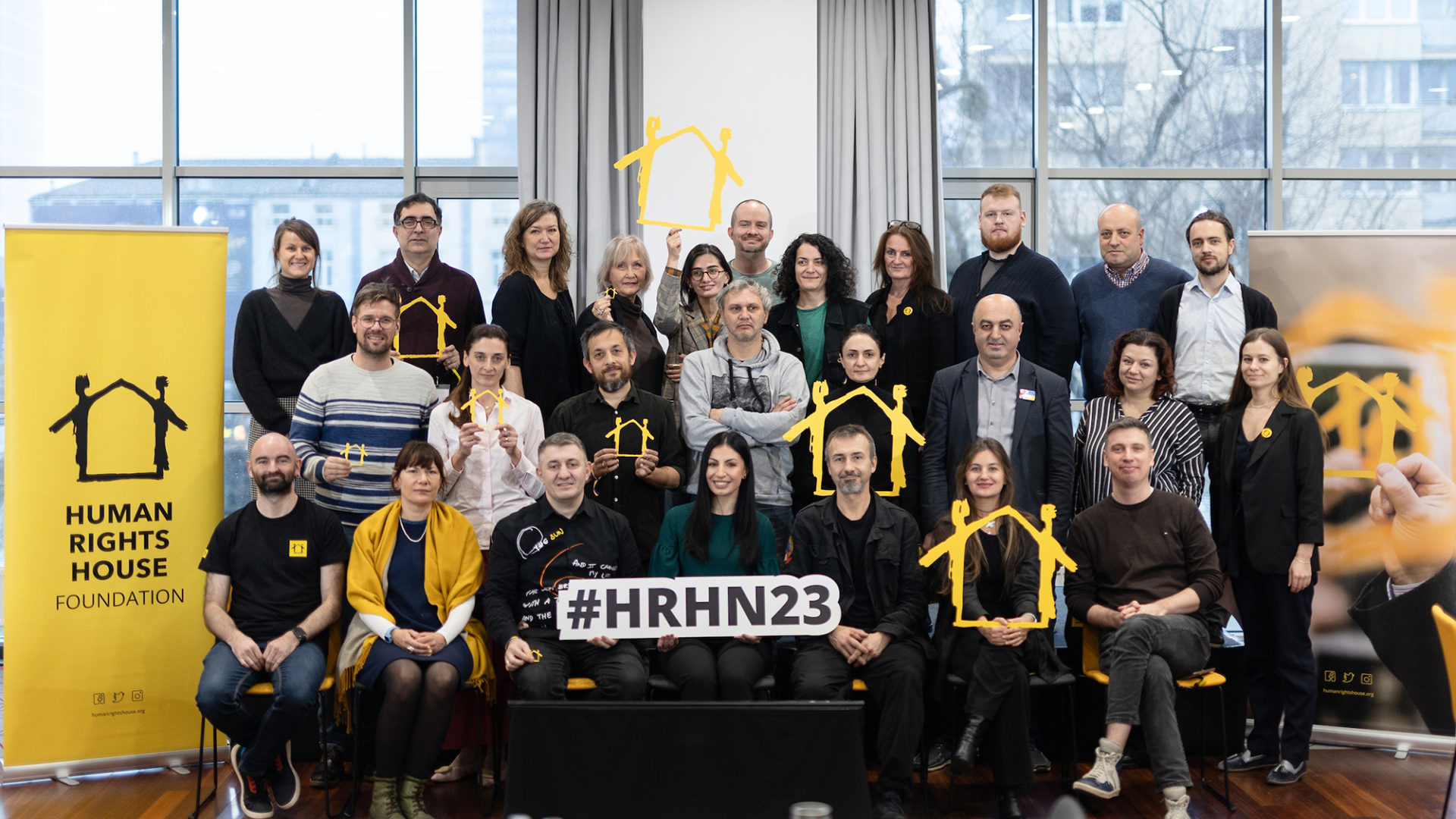📷 Photographs from the Human Rights Houses Network Meeting 2023 can be found here.
These are particularly challenging times for human rights defenders across the regions where we work. This Network meeting of Human Rights Houses, the first following the pandemic, allowed Network members to reconnect and recommit to our core values. Solidarity, experience-sharing, and cooperation across borders makes us all better equipped to continue our work to protect and advance human rights.
Maria Dahle, Human Rights House Foundation
The 2023 Network meeting was the first held following the onset of the global pandemic and amid global upheavals, including a renewed political crackdown in Belarus, Russia’s full-scale invasion of Ukraine and armed conflict in Nagorno-Karabakh. Following the format of previous Network Meetings, this year, human rights defenders from across the region reunited with old colleagues and met with new ones, shared successes, updates and ideas, initiated new processes and projects, and stood united in solidarity with imprisoned colleagues. The Network Meeting also served as a platform to discuss critical trends: the rise of authoritarianism, and the spread of disinformation.
Conversation at the 2023 Network Meeting included a focus on the next generation of human rights defenders. Participants discussed engaging youth and building their capacities to carry the torch of human rights advocacy forward. Furthermore, the meeting addressed the evolving landscape of protection work and financial sustainability, emphasising the strength found in collective action and support within the Network.
Ivan Novosel from Human Rights House Zagreb shares that the 2023 Network Meeting was an opportunity to reconnect with colleagues old and new almost as if no time had passed at all.
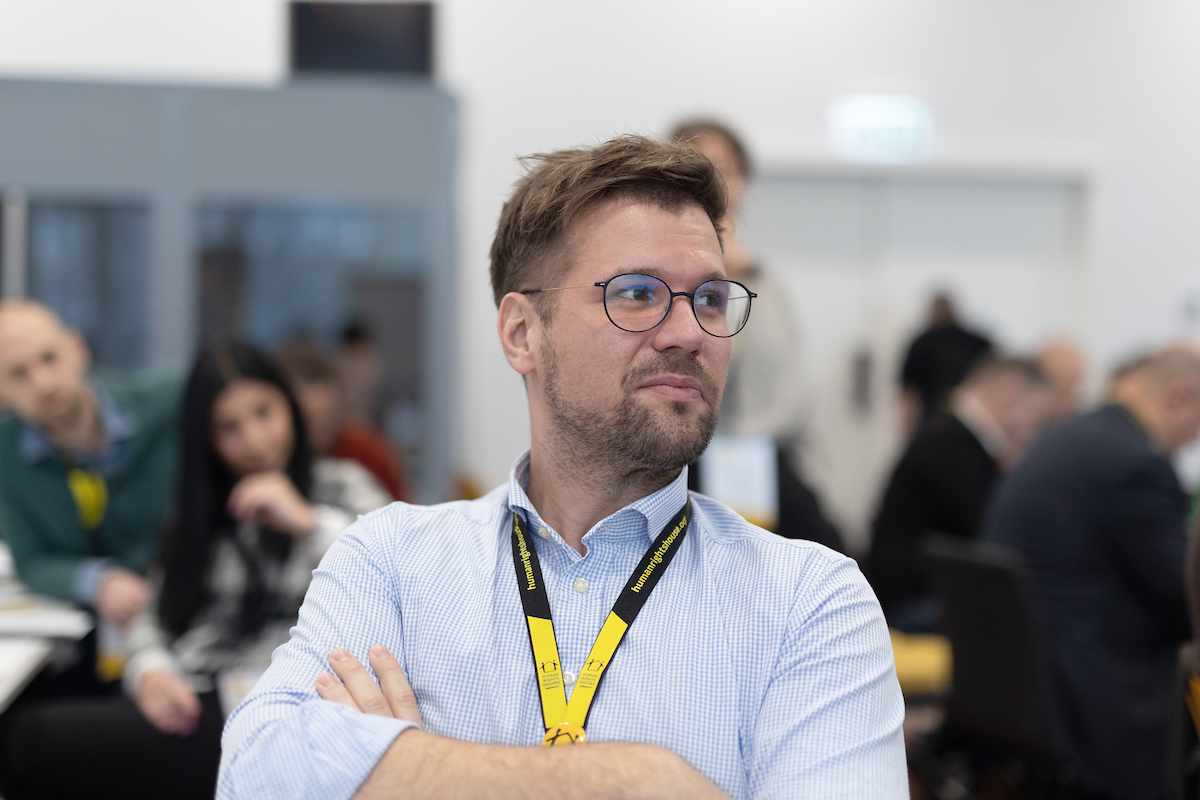
“Despite all that is grim in the world right now, I see hope.”
“[The Network meeting] was a great opportunity to finally reconnect with everyone, to be at the same place in person after four years… At the same time, it was a weird thing because we haven’t seen each other for so long. But I have this feeling that we saw each other almost yesterday – that says a lot about what this Network of Human Rights Houses and HRDs is like – like meeting old friends that you haven’t seen for a while but you immediately can continue where you left off… ”
The exciting news from our region is that we are really close to finally forming the regional network consisting of Human Rights Houses in Belgrade, Banja Luka, Zargeb, and the Sarajevo Open Center.
“We have an ambitious plan in front of us with a lot of activities that we envision … and there is a good energy in it. There is a new generation of human rights defenders and activists from the region that are willing to jump on this ‘regional train’ and work together… and to improve the human rights situation in the region. And I hope it will be a benefit to the Network of Human Rights Houses as a whole for other houses to get inspired, to learn from our successes and from our mistakes and to cooperate together more in the future.”
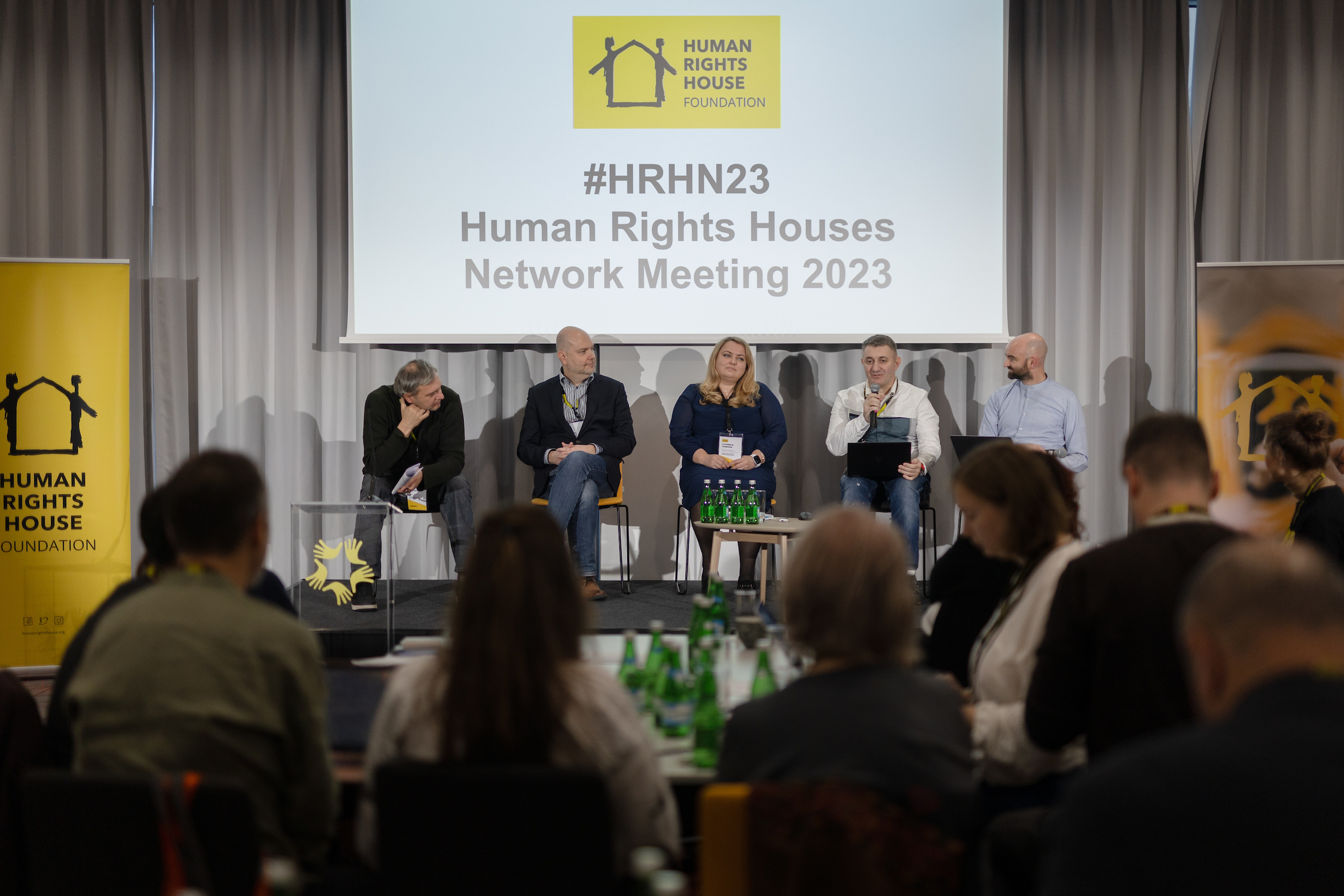
Throughout the three days of the Network sessions, participants engaged in deep discussions about the challenges faced due to rising authoritarianism, following a panel discussion on the subject where several Human Rights Houses took the floor. For Human Rights House Tbilisi’s Ucha Nanuashvili, colleagues in the Network hold a variety of experiences and insights on this subject that each other can learn from.
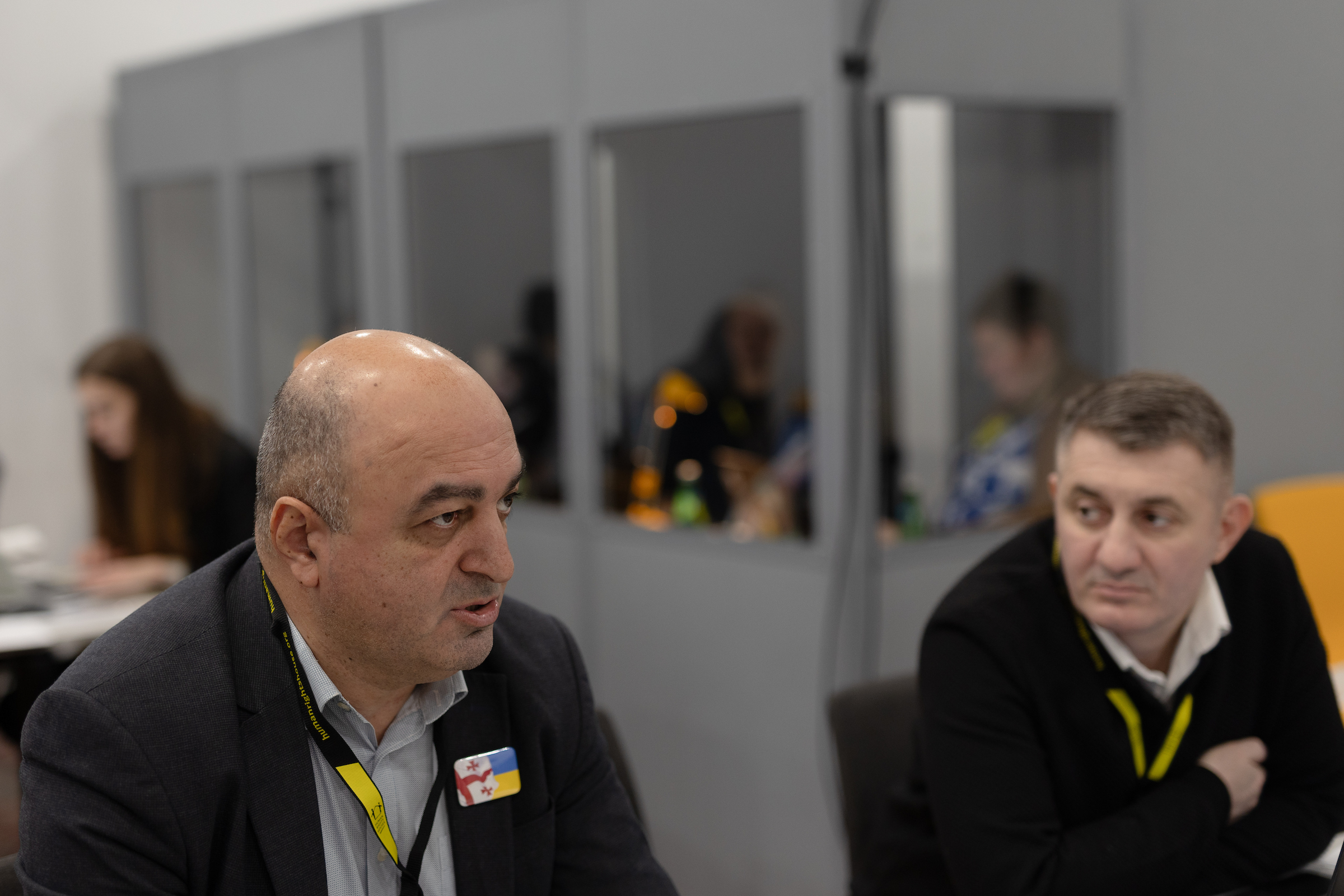
“We have common challenges; authoritarian regimes seek to repress human rights defenders who demand a society where all are free.”
“[Authoritarian regimes] have extended their influence beyond their borders and are trying to press independent actors everywhere, reshape international norms and institutions to serve their own interests.”
“Human rights organisations can unite and counter this process, counter authoritarianism, Russia’s propaganda, Russian-style ‘foreign agent’ legislation, Russian aggression and together document human rights violations, fight against the growing threat of repressions, advocate for changes.”
The wealth of experience and expertise in the Network is something that was touched on by many participants of the Network meeting, including Nanuashvili’s colleague and Chairperson of Human Rights House Tbilisi, Executive Director of The Georgian Centre For Psychosocial And Medical Rehabilitation Of Torture Victims (GCRT) Lela Tsiskarishvili.

“There’s a lot of brainpower and a lot of value-based kind of energy in the network. And this is extremely helpful.”
“I think it’s in any field, but especially in a human rights field, when you work in your contexts, it’s easy to lose perspective. So the value of the network is that it gives you a different perspective. It also gives you a sense of connection and a sense of belonging to a part of something bigger and that you are not alone.
Isolation is also one of the things that is very pervasive among human rights defenders, as this work can be isolating. So being a member of the network…you are not as isolated. Solidarity [among colleagues] – it’s not just a word, it’s a very, very physically felt thing.
“[For instance, as we spoke about] the foreign agent law… Here experience sharing and planning ahead [is key] – and we might be two steps ahead in this, and we might advise colleagues from another House on what the developments could be or the other way around. There’s a lot of brainpower and a lot of value-based kind of energy in the network. And this is extremely helpful.”
Discussions on how to identify and tackle the pervasive issue of disinformation and its impact on human rights were also high on the agenda. An expert panel on the subject dissected the complexities of social media’s role in spreading false information and the delicate balance between combating disinformation and preserving freedom of expression.
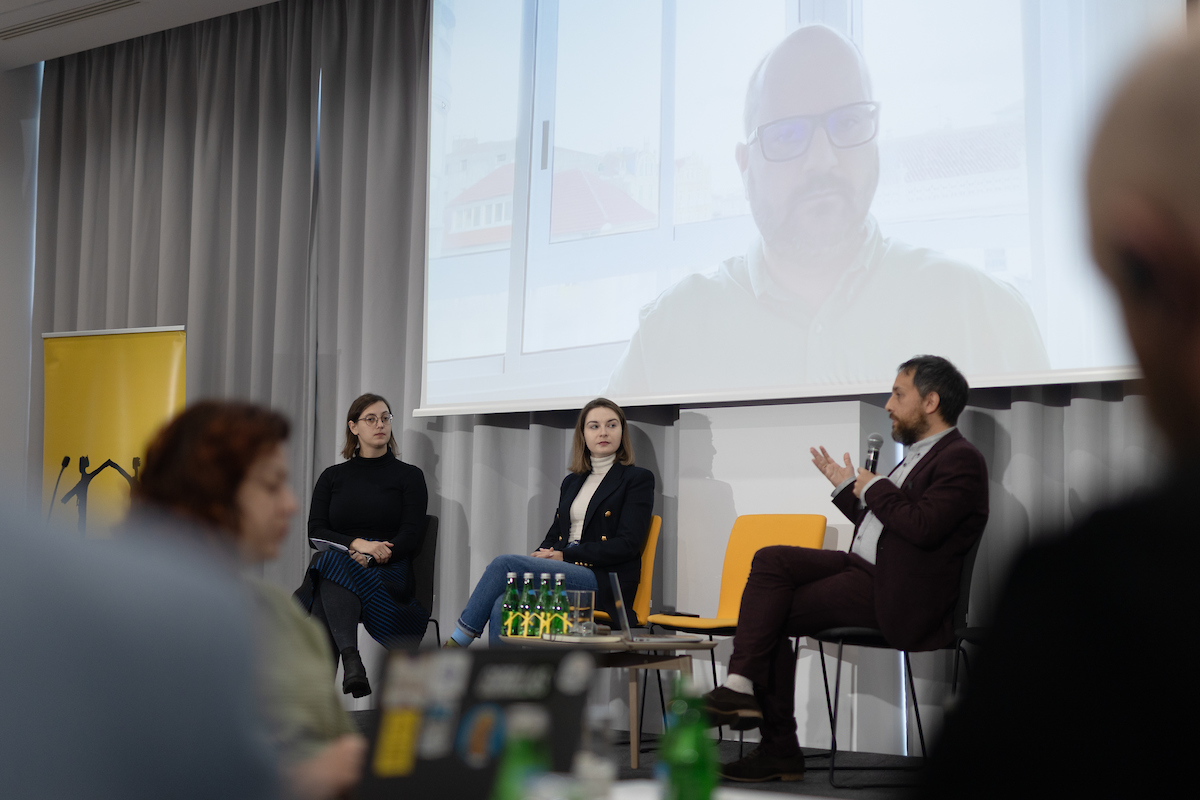
In addition to discussing emerging technologies, challenges and trends at the theoretical level, the Network Meeting served as a platform for participants to discuss practical possibilities for cooperation and harnessing new working methods, and also for moral support, says Ukrainian participant Liudmyla Yankina.
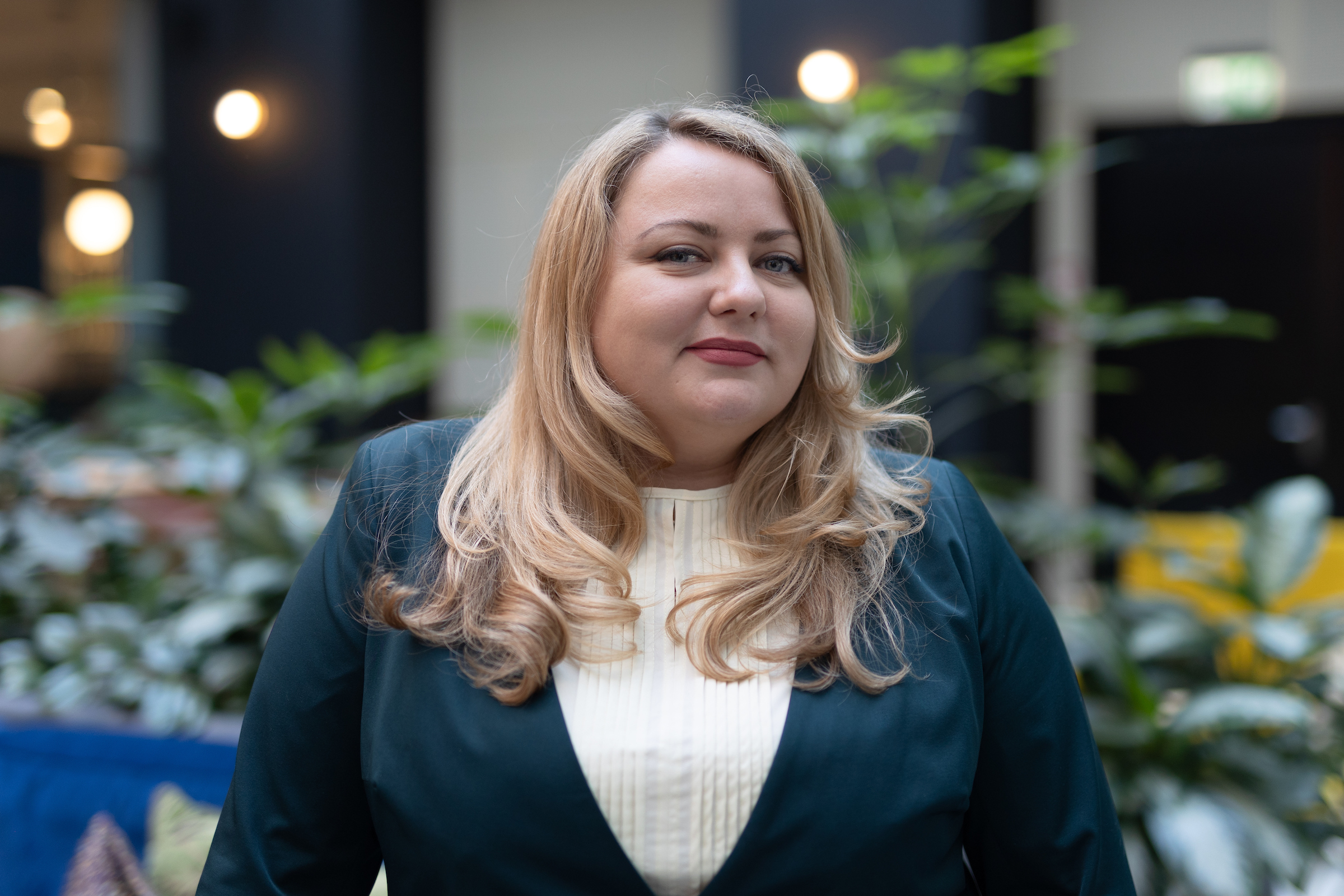
“These meetings are always of the most practical nature from the point of view of my work and the most supportive effect from the personal impact point of view.”
“Such meetings have great value for me – also due to the specific people I admire and respect as professionals, and with whom we have become friends and keep in touch – those who, since the beginning of the full-scale invasion, have shown tremendous care and support for me personally. I am very grateful to them for that, even when we meet outside of Ukraine – for me it is like a kind of therapy.”
For us [Ukrainians], the Network Meeting is not only about new opportunities [for cooperation], but also about moral support – we share with our colleagues some of our difficult moments.
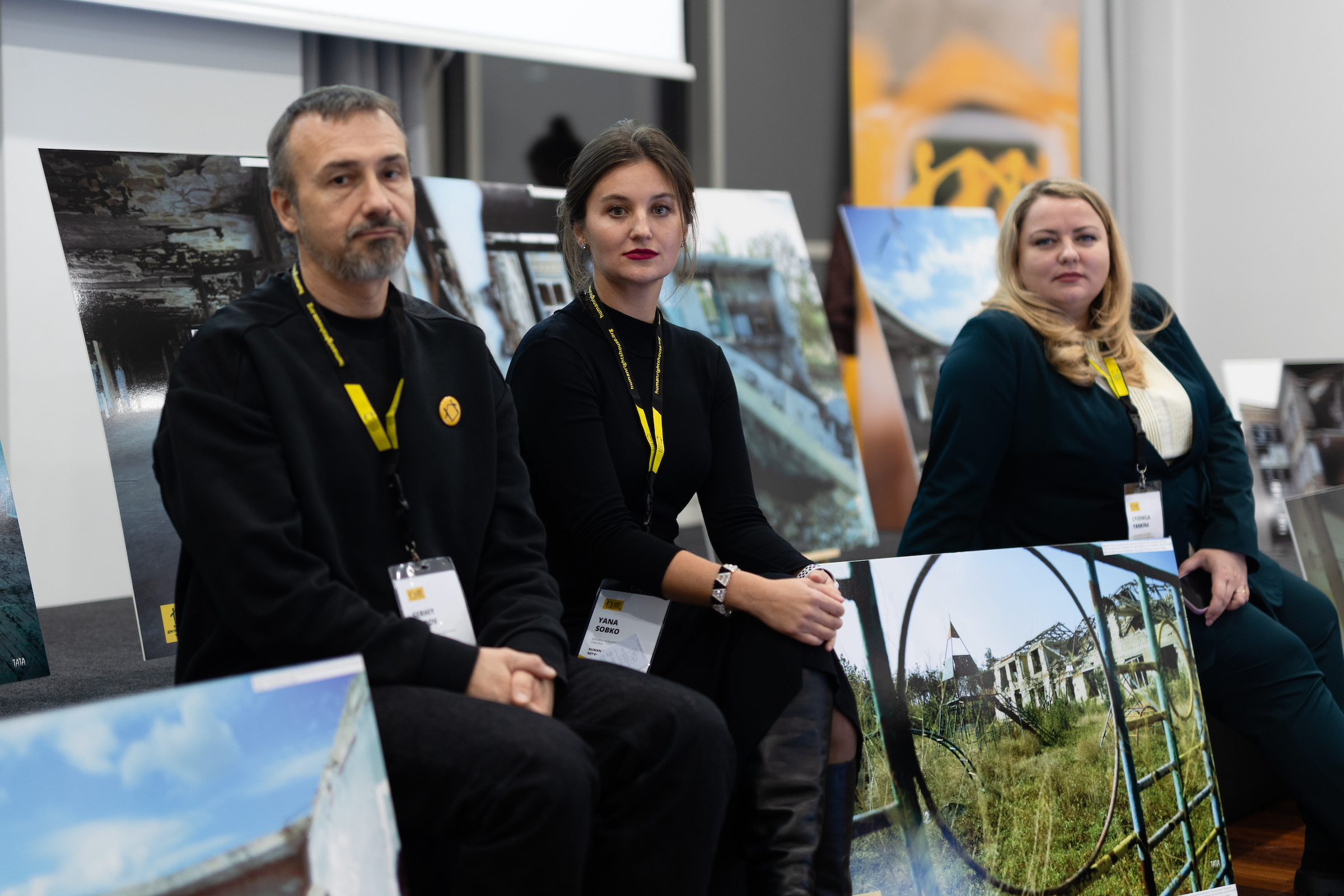
“Online communication is, of course, valuable, and it is wonderful that we still have it… But seeing each other physically, hugging, sharing some of our worries, or consulting about new potential solutions, is very valuable.
For instance, lately, I think a lot about AI and how we can use it, e.g., to help victims of war crimes. And today I had the opportunity to discuss it with my colleagues and the invited experts and we will continue the opportunities in this regard together.
I developed this idea during the meeting – thanks to the lively atmosphere. For me, these meetings are always of the most practical nature from the point of view of my work and the most supportive effect from the personal impact point of view.”
The Network Meeting was also an opportunity for the Houses’ representatives to revisit the Network’s Code of Conduct, ensuring it remains a relevant and guiding force in their work, especially in such challenging times, something that is crucial for PEN Belarus’ Taciana Niadbaj.
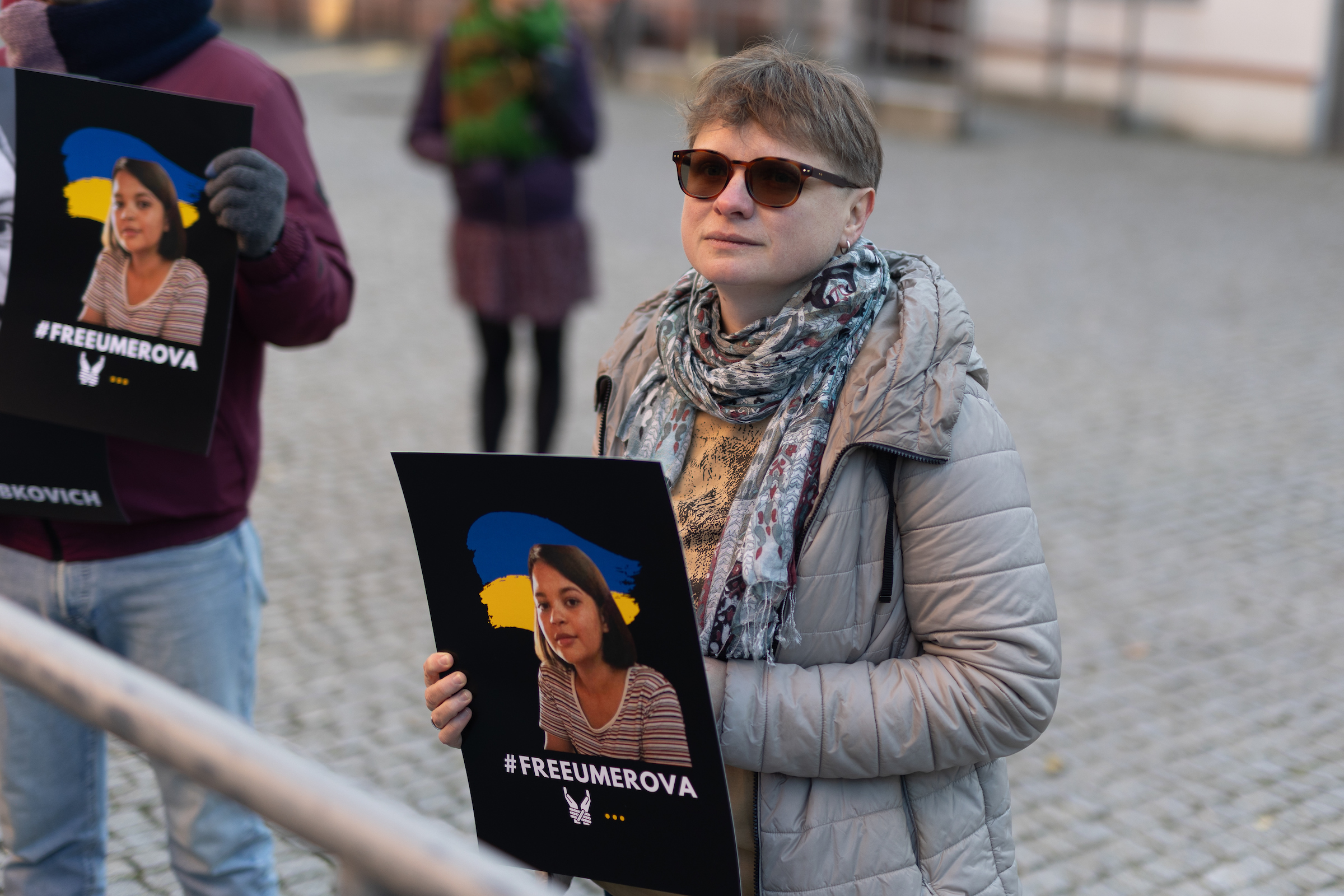
“In difficult situations, [the Code of Conduct] is the seatbelt which, in the event of an emergency, keeps you by core values.”
“[A Code of Conduct] seems to be formal and bureaucratic from one side, but from another side this is something that gives a sense of our values…”
“The Code of Conduct session was very interesting for me, because this is what is very relevant for us – at PEN Belarus, and based on this [HRHF’s] one we will try to create our own.”
“It was my first [Network] meeting… When you actually meet in person and understand ‘who’ and ‘what’ – it gives you a much better feeling of orientation. For me, first of all, this is an advocacy opportunity.”
“This Network is about mutual support, about the experience of others to learn from and about sharing your own experience which can also be useful to someone. When we operate in our own ‘bubble’ and think everything is going bad and we have nothing good [to share] and here you realise that for someone you can be a sort of a role model – this makes you feel positive.
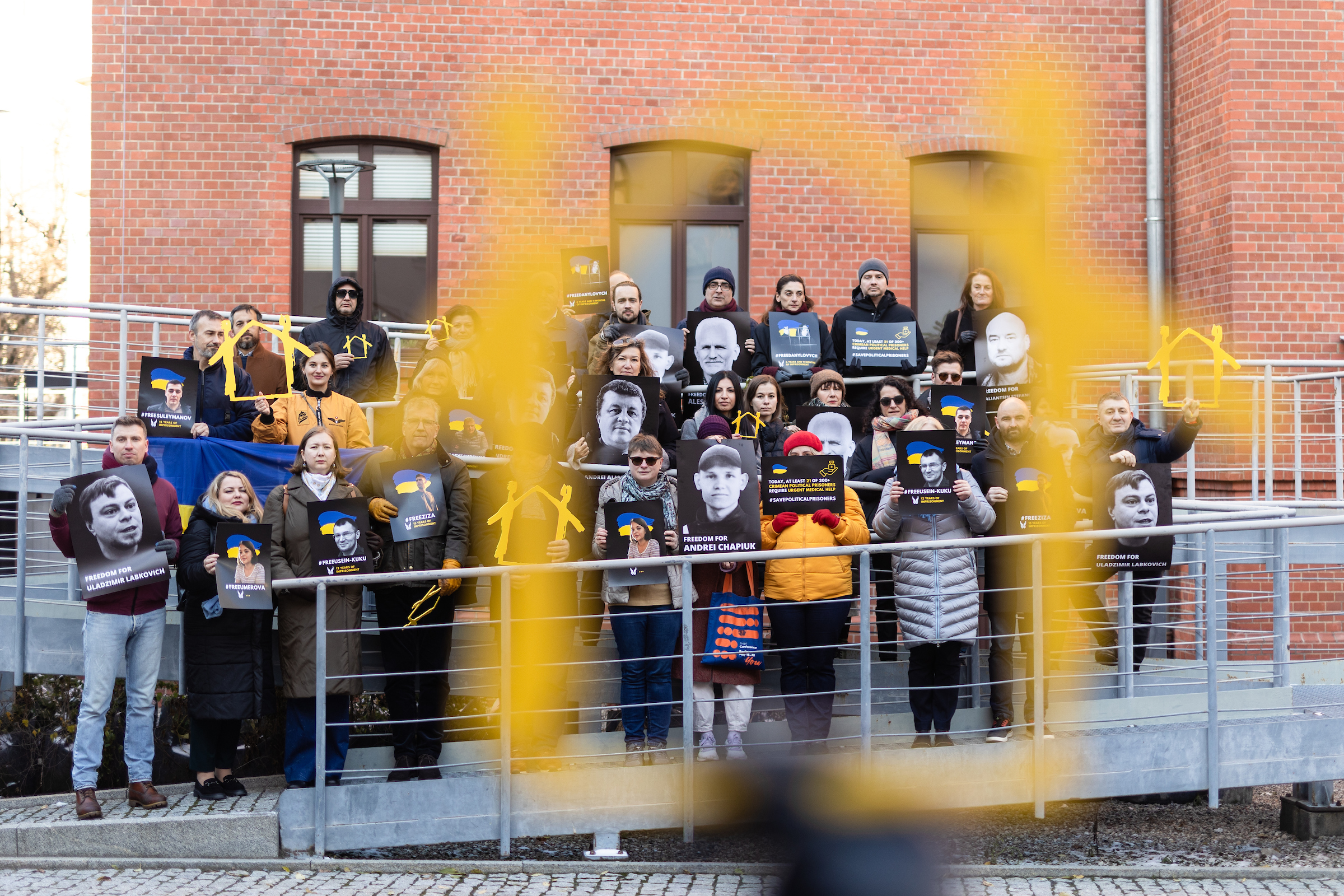
“Letters and solidarity are extremely important.”
Elaborating on the power of solidarity, Niadbaj touched on the importance of sending written correspondence to those unjustly imprisoned as reprisal for their legitimate human rights work.
“When we published a book about Ales Bialacki – it was based on his writings, photos we found and quotes from colleagues mentioned by Ales in his books – this was an important part of the book – comments of the colleagues. During the Network Meeting – I’ve met some colleagues, who Ales mentioned in the book.”
“I think these [solidarity actions and letters] are very important, though I do understand it will not change the situation of Ales and other colleagues who are in prison now and can not receive those letters.”
“In this book of Ales’ there is a special section dedicated to the letters. As when he was in prison previously, he received a great number of letters – when they were not blocked… ‘lost’ by censors – this was very important for him.”
“Now I think that in this situation when letters are not delivered – it is still extremely important to write and send them, while keeping a copy. So that censors, [prison] administration see that the person is not forgotten and when the person is released [from prison] they can read those as copies – and receive what was not received during imprisonment.”
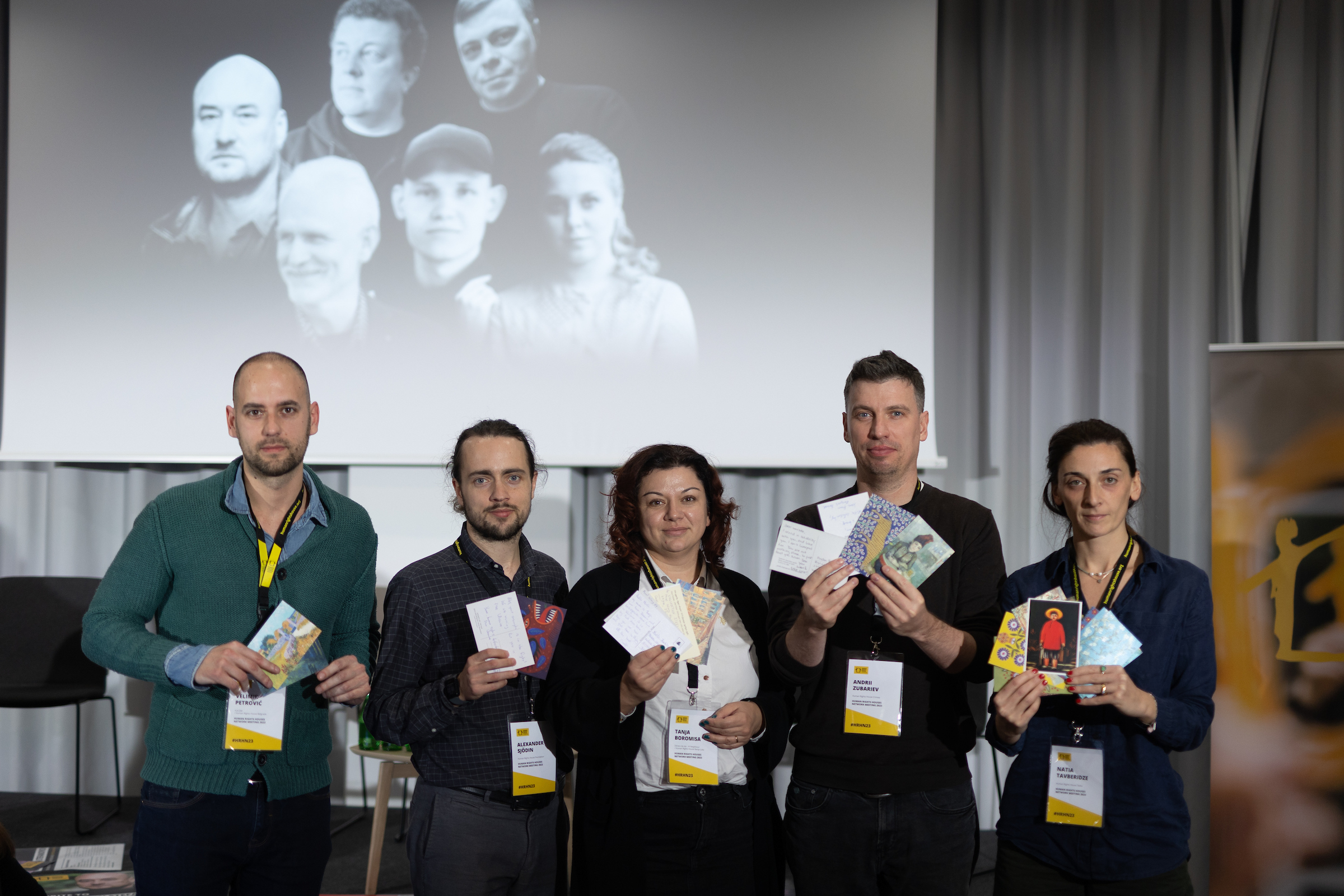
“The letters can also hold back the administration [of the prison] – they will still be telling [to political prisoners] ‘no one cares about you, no one remembers’ but they will not feel it, or maybe they will be on the contrary more careful in their pressure and outrage towards [our colleagues].”
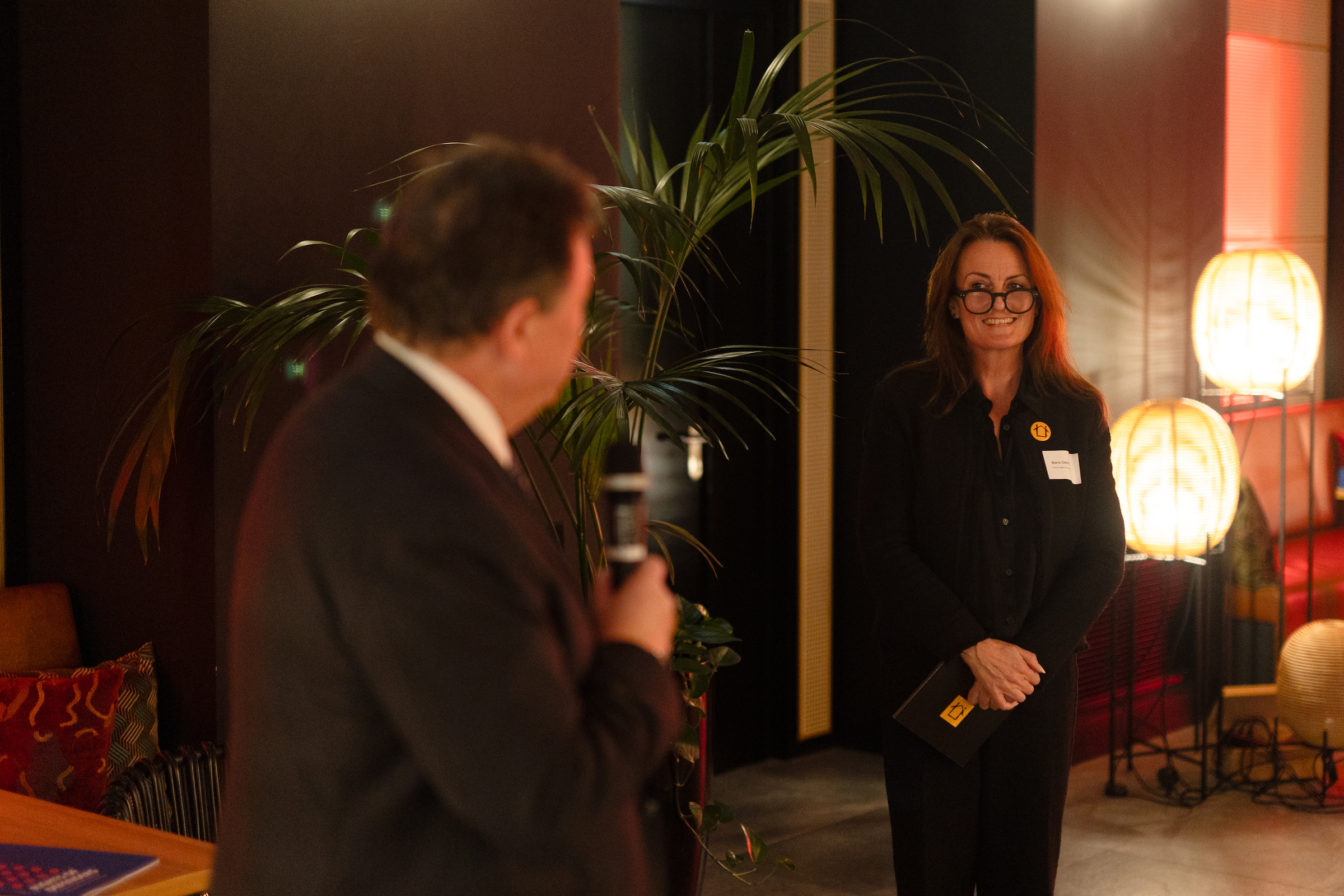
The Network Meeting concluded on Thursday, November 24, with a reception welcoming guests, including several ambassadors, and a presentation of the updated Rights of Defenders booklet. Following the Network meeting, several participants stayed on for a full-day seminar dedicated to the Network’s joint protection activities.
The 2023 Network Meeting was not only an opportunity to strengthen connections and renew friendships but also a platform to recommit to our joint work in defending and advancing human rights.
Daiva Petkevičiūtė, Human Rights House Foundation
Human Rights House Foundation thanks its donors – Norwegian Ministry of Foreign Affairs, Switzerland Federal Department of Foreign Affairs (FDFA), European Union, Ministry of Foreign Affairs of Finland, and European Endowment for Democracy – whose support makes HRHF’s work and the Network Meeting possible.


